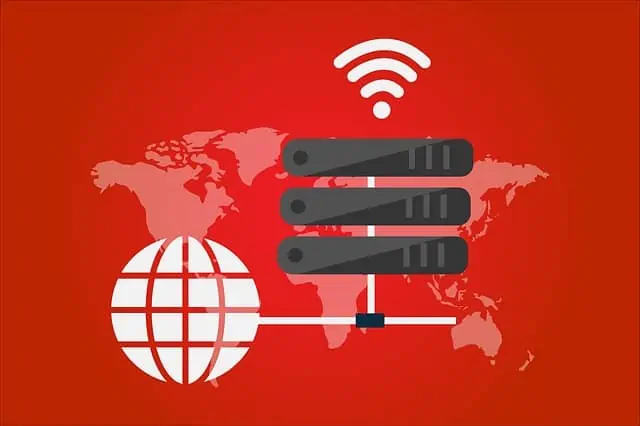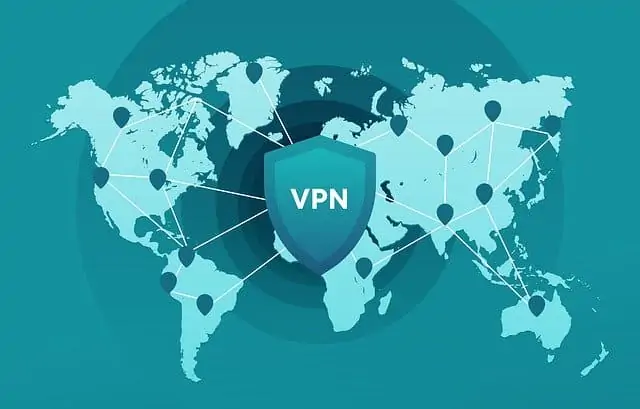This is a term I came across when using the Private Internet Access (PIA) VPN service, and it puzzled me a bit. What exactly is a Geo-Located server in VPN terms, how does it work, and how does it differ to a normal VPN server?
A geo-located VPN server means that the server itself is not actually located in the country you select, but the IP address of the exit node is still located in that country. Therefore, it still appears as though you are in the selected country.
In other words, it’s an indirect type of VPN server, where traffic is routed through an intermediary server in a different country, but the exit node and IP address are still located in the end country, meaning it should appear to websites and other streaming services that you are in the destination of the selected server (whether this actually works in reality though is a different matter, and something we’ll explore further below).
Therefore geo-located servers effectively get you to the same end result as a normal VPN server, but just in a more indirect, roundabout way. Let’s look at the issue in more detail.
Standard VPN Servers vs Geo-Located Servers
Perhaps the best way to understand Geo-Located VPN servers is to compare them with normal VPN servers:
Normal VPN Server – With a standard VPN server, both the end server and exit node (if used) will be in the country/server you select. For example, if you open up your VPN software and select a server in Austria, and this is a normal physically located VPN server, then the actual physical servers will be located in Austria, as well as any exit nodes, if used (exit nodes are just end terminals/computers that are in the target country, and the final step in the traffic routing process before data finally gets to your own device. The VPN IP address belongs to this end device (node), which is what masks you own IP address and preserves your privacy. Websites think that this device is accessing them, and not yours). All VPN traffic will be routed through servers actually physically present in the country/city you select.
Geo-Located VPN Server – When the VPN server is geo-located, the exit node is located in the country selected, but the intermediary server is not. Traffic is routed through a server located in a different country, and sent to an exit node (end device) which is physically located in the target country. For example, if your VPN software has a geo-located server in Cyprus, then this is telling you that the server through which traffic is sent is not located in Cyprus (perhaps it’s somewhere nearby like Turkey or Greece), but the final exit node is (there will be some kind of physical computer in Cyprus, with an IP address there, that is the final step before the encrypted data is finally sent to your own device. Websites/streaming sites etc, see this device’s IP address and location, not yours, but because it’s still located in the target country, you should still be able to access them).
Why Do Geo-Located VPN Servers Exist?
The description above might sound really complex and convoluted, and you might wonder why geo-located VPN servers even exist in the first place. Why don’t VPN providers just make all servers physically present in the target country, to save the need for all this complex re-routing through different countries?
As a general rule, when VPN companies can physically locate servers in the target country, they usually will. It’s just that sometimes they can’t because of cost, logistical or legal/regulatory reasons. Also, VPN services that use third party servers to route traffic sometimes can’t find reliable servers to use in the target country, so they have to route through servers intermediary countries instead.
Here’s a main list of reasons why a VPN server might be geo-located:
- It might simply cost too much to set up servers physically in the target country, because of regulation or something else, so it makes more financial sense to route traffic through servers in another country as well, and just keep a small, low cost exit node in the target country. Perhaps there aren’t enough users of the service in the target country to make it worth setting up full servers there.
- VPN providers might be using third party servers and data centers in the target country, and if these data centers close (perhaps they go bankrupt or are bought out), then they might have to close down the servers and find another option (see here for an example of this with PIA closing South African servers)
- They might just not be able to find reliable third party servers in the target country to route traffic through, so they have to use servers in another country instead.
- The country might be harsh in terms of regulation, with laws that violate online privacy that means the VPN is unable or unwilling to provide servers or exit nodes there. They might require logging of user data that leaves the VPN provider unable to keep user’s identity confidential, so they either don’t set up physical servers there or have to leave completely (see here again for an example of PIA removing all servers and exit nodes from Brazil because of legislation and privacy concerns a few years ago, but as of now, they have a geo-located server in Brazil again).
Note – When selecting a VPN provider, it’s a good idea to pay attention to this issue of servers, legislation and data logging. A good VPN provider will never comply with any governmental data logging requirements if they are truly about protecting customer privacy, and will be prepared to leave the country altogether if it’s forced on them by legislation. PIA appear very good in this sense. Always look for a zero logs policy with a VPN service, and don’t use a service that doesn’t have this.

Do Geo-Located VPN Servers Work Like Normal VPN Servers?
But let’s cut to the real question many users will want to know here – do geo-located servers work just the same as normal VPN servers? Can you still access geo-restricted services like streaming sites when using a geo-located server that isn’t physically located in the target country?
I’m actually using the Private Internet Access (PIA) service at the moment, so I’m going to test this out. I’m going to use the geo-located servers in a couple of countries, to see if I can still access certain geo-restricted sites in these countries.
The outcome of my testing was rather mixed and complex; here is a bottom line answer:
Geo-located VPN servers can sometimes work in allowing access to certain websites in the target country, including betting/gambling websites and sports websites. However, geo-located VPN servers do not work so well for accessing streaming services like Netflix, HBO and Disney Plus.
Let me explain a bit more by breaking down what I found when testing different servers:
Betting/Gambling Sites – This is an excellent area to test in, because online gambling websites almost always have restricted territories, where users from certain countries are not allowed to access or register for their services. Testing this in multiple countries, I got 100% accuracy in terms of server use and service access. In other words, if the site was meant to be blocked based on the selected country, it was blocked, and if it was meant to be allowed, then it was allowed, even using geo-located servers that were routed through another country initially. So geo-located VPN servers can be great for accessing these kind of websites.
Streaming Services – More complex and mixed, but leans towards the negative side here. I tested major streaming services using geo-located VPN servers in multiple countries (especially in Europe), and more often than not, access was blocked, even though it was meant to be allowed based on the country server choice. This is especially so for the really big companies like Netflix, HBO and Disney Plus streaming services. However, it has to be said that with the PIA service in particular, even some of the normal VPN servers didn’t work for streaming services, so there might be a wider problem with their servers being blocked.
As a general rule, geo-located VPN servers are not very reliable for accessing streaming services, even when the correct country is selected.
Major streaming sites are now better able to detect when VPN’s are being used, and even more so when traffic is being routed through intermediary servers, such as with geo-located VPN servers.
Conclusions on The Performance of Geo-Located VPN Servers
I’m not enough of an expert to fully understand why geo-located servers work better for accessing some types of website than others. I can only assume that the really big streaming websites are now wise to the use of VPN software to circumvent geo-restrictions, and have installed more sophisticated technology for detecting when a VPN IP address is being used (whether normal or geo-located).
Therefore, it’s getting harder and harder to access these services, especially with geo-located VPN servers. However, for other types of website, that perhaps don’t use such advanced detection methods, then geo-located VPN servers can work fine for accessing websites that might have been blocked before.
Another thing I noticed when testing this is that when I selected a certain geo-located VPN country/server, and then did a search for what my current IP address was using a lookup tool, I also sometimes got different results from different tools. Some of them listed everything as in the destination country (eg. I selected Portugal, and the tool matched up and said everything was in Portugal – The IP address, location etc).
However, other tools would list the IP address as being in Portugal, but list the location as being the intermediary country the traffic was being routed through (eg. Spain). All using the same geo-located VPN server and the same browser! The same thing happened when I tested the Mexico geo-located server, that was routed through Miami, Florida. Some IP tools picked this up and listed the location as Florida, but the IP address as Mexico; others didn’t and listed everything as Mexico.
So even different IP lookup tools gave different answers when testing the same VPN server – some of them seemed to pick up that the server was geo-located and traffic was being run through a different server in a different country first, while other tools didn’t pick this up and seemed to be “fooled” by the geo-located VPN server.
Therein might lie the answer as to why the effectiveness of geo-located VPN servers varies – it depends on how sophisticated a website’s methods are for detecting the real user IP and location (plus any intermediary servers), whether or not the geo-located VPN server manages to “fool” the website and gain access.
